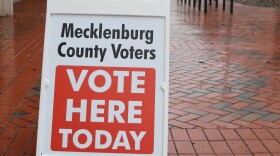Rooftop solar power has become something of a frontier land rush as we shift to renewable energy to fight climate change. Hundreds of entrepreneurs, some with little or no experience, have flooded into the business. Advertisements promise free solar panels and zero-dollar energy bills. Lots of lies are being told, to take advantage of our good intentions.
You may have read the news recently about the collapse of Mooresville-based solar firm Pink Energy, formerly known as Power Home. David Hodges at WBTV reports that the company is shutting down.
The failure of the business leaves thousands of customers around the country stranded.
Pink says in a lawsuit that its problems stem from bad equipment from a battery supplier. But other reports suggest there's more to the story. A WBTV investigation two weeks ago found complaints from before the company started working with that supplier.
WBTV's Hodges says customers complain that Pink's solar systems aren't working as promised, or at all. And the supposed savings haven't materialized. Many are still on the hook for monthly loan payments — even when their systems aren't working.
[UPDATE: Attorney General Josh Stein's office has begun an investigation of the company, a spokeswoman said Monday. She gave no details.]
N.C. Sustainable Energy Association reports that other solar installers are stepping in to help out. "I have a chance to talk with some equipment providers and they’re in the early stages of coordinating with other installers to reach out to customers proactively to try and address some concerns and help with warranty repairs," said NCSEA spokesman Matt Abele.

Renu Energy Solutions in Charlotte has set up a sister company, Sun Service, specifically to handle problems with systems installed by companies like Pink, company President Jay Radcliffe said.
"It's not just them. It's all the orphaned systems that people have purchased. It's come back, maybe it's disappointing. And so our service team will go out there and service any system," Radcliffe said.
There are far too many stories out there about people who tried to go solar, only to get shoddy service, he said.
So how do you keep from getting scammed?
NCSEA's Abele urges people to work only with companies that meet certain standards. The association has a Solar Business Code of Conduct and lists all of its member installers that have signed an agreement "committing to upholding the highest professional standards in the industry."
"We are often pointing customers to these installers to help with repairs or replacements of systems installed by industry bad actors," Abele said.
Radcliffe said many companies selling rooftop solar aren't qualified. Some don't even have licensed electricians. Some are just marketing companies that sell their contracts to installers, who themselves may not be up to snuff, he said.
"They're not general contractors. They don't have all the proper licensing. They're not NABCEP certified," he said. NABCEP is the North American Board of Certified Energy Practitioners.
"If you don't have all these things, they shouldn't even be able to come to your door or even sell to you," Radcliffe said.
Find out more in the NCSEA's NC Consumer Guide to Solar Electricity and Solar Business Code of Conduct.
This report originally appeared in WFAE's weekly Climate e-mail newsletter, which is published Thursdays.







